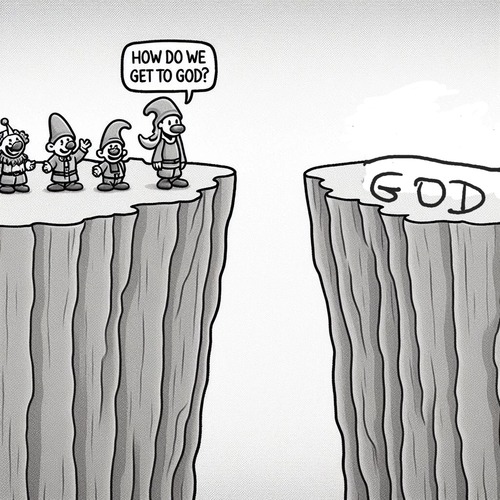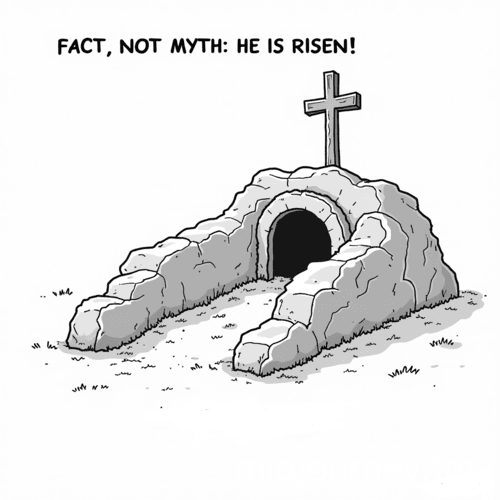‘Out of Egypt I Called My Son’: Did Matthew Misuse Hosea 11:1?
When Matthew quotes Hosea 11:1 in his Gospel—“Out of Egypt I called my son”—he draws a connection that has puzzled readers for centuries. How can a text clearly referring to Israel’s exodus be applied to Jesus? Is this a misapplication of Scripture, or is something deeper happening?
THE APPARENT PROBLEM
In Hosea 11:1, the prophet clearly refers to Israel’s historical exodus from Egypt: “When Israel was a child, I loved him, and out of Egypt I called my son.” The original context unmistakably identifies Israel as God’s “son.”
Yet Matthew 2:15 applies this same text to Jesus’ return from Egypt after Herod’s death: “This was to fulfil what the Lord had spoken by the prophet, ‘Out of Egypt I called my son.’”
Critics argue Matthew misused the Old Testament, but the Reformed perspective offers a rich theological understanding that reveals profound biblical unity.
THE REFORMED UNDERSTANDING OF TYPOLOGY
The Reformed tradition recognises Matthew employs typology—a method of interpretation where earlier biblical persons, events, or institutions (types) prefigure and find their fuller meaning in Christ (the antitype).
Israel as God’s “firstborn son” (Exodus 4:22) was always an imperfect pointer to Christ, the true Son. Israel’s exodus from Egypt foreshadowed a greater deliverance through Jesus, the ultimate fulfillment of what Israel was meant to be.
FIVE REASONS MATTHEW’S USE OF HOSEA IS LEGITIMATE
- Christ as True Israel: In Reformed theology, Jesus recapitulates Israel’s history, but without failure. Where Israel rebelled, Jesus remained faithful. Jesus is the true Israel, the faithful Son who perfectly embodies what corporate Israel was called to be.
- Divine Inspiration: The Holy Spirit inspired both Hosea and Matthew. The same divine Author had the Christ-centred fulfillment in view even when inspiring the original prophecy.
- Redemptive-Historical Framework: The Bible tells one unified story of redemption. Israel’s exodus anticipated a greater redemption through Christ. Matthew doesn’t misappropriate Hosea; he reveals its deeper, intended significance.
- Sensus Plenior: Reformed interpreters recognise biblical texts often have a “fuller sense” (sensus plenior) beyond what the original human author fully understood. God’s intentions transcend human limitations.
- Covenant Theology: In the Reformed covenant framework, the promises to Israel find their “yes and amen” in Christ (2 Corinthians 1:20). The exodus was never merely about national Israel but pointed forward to Christ’s redemptive work.
NOT ALLEGORY, BUT GOD’S DESIGN
This isn’t arbitrary allegory or creative reinterpretation. Matthew is revealing God’s intentional design—that Israel’s story was always meant to foreshadow Christ. The Reformed tradition sees Scripture as fundamentally Christ-centred, with the Old Testament containing divinely-embedded pointers to the Messiah.
PRACTICAL IMPLICATIONS
This understanding transforms our Bible reading. We see:
- Scripture’s Unity: The Bible tells one cohesive story centred on Christ.
- God’s Sovereignty: The Lord ordained historical events and texts to point to Christ.
- Biblical Authority: Matthew’s interpretation, being divinely inspired, shows us how to properly understand the Old Testament.
- Christ-Centred Hermeneutic: We learn to read Scripture as it was intended—with Christ at the centre.
CONCLUSION: OUT OF EGYPT I CALLED MY SON
Matthew’s use of Hosea 11:1 isn’t a misappropriation but a divinely-intended revelation. The Reformed perspective helps us see the exodus was always meant to foreshadow Christ’s redemptive work. Israel’s sonship anticipated the true Son who’d accomplish what Israel could not.
When we embrace this Christ-centred interpretive framework, we discover Scripture’s magnificent unity and see how God has been working through all of redemptive history to bring salvation through His beloved Son.
OUT OF EGYPT I CALLED MY SON: RELATED FAQs
How do contemporary Reformed scholars view Matthew’s use of Hosea 11:1? GK Beale identifies this as a prime example of “typological fulfillment,” where Christ embodies and fulfils Israel’s role as God’s son. Beale argues in his work on biblical theology that Matthew doesn’t ignore context but recognises the organic connection between Israel’s exodus and Christ’s return from Egypt as divinely designed parallels. This approach respects both the original context and the New Testament application.
Why didn’t Matthew use a more obvious messianic prophecy instead? Matthew’s choice demonstrates Christ fulfils not just explicit messianic predictions but the entire redemptive storyline of Israel. Richard Gaffin and others suggest Matthew deliberately shows how Jesus recapitulates and perfects Israel’s history, not merely fulfilling isolated predictions. This comprehensive fulfillment pattern reveals Jesus as the culmination of all God’s promises, not just selected prophecies.
Does Matthew’s interpretation method give us license to find Jesus in any Old Testament passage? No, Matthew’s approach follows consistent theological and textual patterns rather than arbitrary connections. Michael Horton and others emphasise that biblical interpretation requires recognising divinely established typological patterns, covenant structure, and the Bible’s redemptive-historical framework. Responsible interpretation acknowledges these established patterns rather than creating subjective allegories.
How does covenant theology specifically inform our understanding of this passage? Covenant theology sees all biblical covenants as progressive administrations of the one covenant of grace fulfilled in Christ. Meredith Kline and O Palmer Robertson demonstrate how Israel’s identity as God’s “son” was always covenantal, pointing to the ultimate Son who would perfectly fulfil covenant obligations. The Exodus motif in Hosea represents God’s covenant faithfulness that finds its fullest expression in Christ’s redemptive work.
How do we respond to critical scholars who claim Matthew was simply proof-texting? Kevin Vanhoozer and other Reformed scholars argue Matthew’s approach reflects sophisticated theological exegesis, not arbitrary proof-texting. Matthew understood Scripture’s unified redemptive purpose and recognized legitimate typological connections established by God himself. Rather than imposing meaning, Matthew uncovers the divine intention woven into Scripture’s unified redemptive narrative.
Doesn’t Paul use Hosea in a similar way elsewhere in the New Testament? Yes, Paul does employ a similar redemptive-historical approach when using Hosea’s prophecies in Romans 9:25-26. Sinclair Ferguson notes both Paul and Matthew recognise Hosea’s prophecies about Israel have their ultimate fulfilment in Christ and the new covenant community. This consistent interpretive approach across New Testament authors suggests apostolic recognition of Hosea’s deeper Christological implications.
How does Matthew’s use of Hosea 11:1 compare with other “fulfilment” citations in his Gospel? Matthew’s Gospel contains numerous fulfillment citations that function in different ways, creating a sophisticated theological framework. DA Carson and others note Matthew employs direct prediction, typology, and thematic fulfillment throughout his Gospel. The Hosea citation demonstrates typological fulfillment where Jesus embodies and perfects Israel’s identity and experience rather than simply fulfilling a direct prediction.
OUT OF EGYPT I CALLED MY SON: OUR RELATED POSTS
- Is Isaiah 9:6 Really About Jesus? Can We Be Certain?
- Affirm the Virgin Birth? Why Must We?
- The Bethlehem Connection: Why God Chose a Humble Town For His Son
Editor's Pick

Paul’s Mandate for Men: Headship Or Servant Leadership? Or Both?
Modern Christianity has fallen into a trap. We've created an either/or battle between "headship" and "servant leadership," as if these [...]

Should We Stop Using Male Pronouns for God? Why Do We Say No?
A friend of ours arrived eagerly at his first theology class in seminary. But he quickly discovered something troubling: the [...]

Did Old Testament Law Force Women to Marry their Rapists?
**Editor’s Note: This post is part of our series, ‘Satan’s Lies: Common Deceptions in the Church Today’… Viral misinformation abounds [...]

From Danvers To Nashville: Two Statements, One Biblical Vision
30 years separate the Danvers Statement on Biblical Manhood and Womanhood (1987) and the Nashville Statement on Human Sexuality (2017). [...]

The Nashville Statement: Why Affirm It Despite Media Backlash?
WHY DO REFORMED CHRISTIANS STAND BY THIS STATEMENT ON MARRIAGE AND GENDER? When the Nashville Statement was released in 2017, [...]

Who Is Belial? Solving The 2 Corinthians 6:15 Mystery
Belial: This name from the pages of Scripture chills the soul. Who is this mysterious figure Paul invokes in 2 [...]

Celibacy Or Castration: What Jesus Really Means in Matthew 19:12
One of Scripture's most shocking misinterpretations led theologian Origen to castrate himself in the third century. His tragic mistake? Taking [...]

Philippians 4:13: Did Paul Really Mean We Can Do ALL Things?
"I can do all things through Christ who strengthens me." It's on gym walls, graduation cards, and motivational posters everywhere. [...]

The Ordinary Means of Grace: Why Are They Indispensable?
ORDINARY MEANS FOR EXTRAORDINARY TRANSFORMATION What if God's most powerful work in believers' lives happens through the most ordinary activities? [...]

Is the Bible God’s Word? Or Does It Only Contain God’s Word?
The authority of Scripture stands at the crossroads of modern Christianity. While some argue the Bible merely contains God’s Word [...]
SUPPORT US:
Feel the Holy Spirit's gentle nudge to partner with us?
Donate Online:
Account Name: TRUTHS TO DIE FOR FOUNDATION
Account Number: 10243565459
Bank IFSC: IDFB0043391
Bank Name: IDFC FIRST BANK






